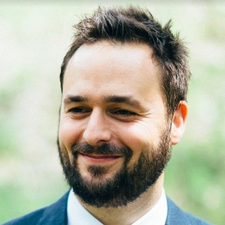UCR psychology associate professor Brent Hughes and doctoral student Eleanor Collier have received a $642,697 grant from the National Science Foundation to study self-disclosure as it relates to social connection. Self-disclosure refers to revealing one’s thoughts, feelings, and experiences.
The aim of the study is to consider strategies for combatting loneliness, which was exacerbated by the COVID-19 pandemic. A 2020 study found a near-20% increase in extreme loneliness, with 35% of those people entertaining suicidal thoughts.
The study will examine two possible links between self-disclosure and social connection: speech features and neural synchrony. Once speech reaches listeners’ ears, it is converted to neural signals from which meaning is interpreted. When the neural signals of listeners align with those of speakers—i.e., neural synchrony—listeners comprehend speakers’ experiences more accurately and interpret them more similarly. And so neural synchrony provides a measure of the success of self-disclosure.
The first objective of this research is to identify the features of self-disclosure that are most effective at eliciting neural synchrony.
“Disclosers typically have little control over how listeners respond,” Hughes and Collier wrote in the grant proposal. “Thus, existing research leaves individuals who seek connection in an unfortunate predicament: the best they can do is find someone to disclose to, and hope that person does a good job of making them feel understood. It would be more directly beneficial if research could equip disclosers themselves with strategies to help listeners understand them.”
“This would not only help listeners respond more supportively, but would also help people build deeper and more supportive relationships.”
The second objective is to study neural synchrony in a more intimate manner. Rather than “steps-removed” interactions such as watching a video or listening to a stranger tell a story, Hughes’ study will feature friends disclosing experiences and listening to each other.
For the study, Hughes’ team will recruit groups of friends from the UC Riverside community. The participants will be recorded sharing four personal experiences, two positive and two negative, after which they will interpret their experiences. Their partners will then listen to the recordings and share their understanding of the disclosures. Finally, the two sets will compare their understanding of the shared experiences.
“This more naturalistic paradigm will enable us to probe neural synchrony’s role in real-world social connection in a deeper way than previous studies have been able to,” Hughes wrote.
The grant’s term began on Aug. 1, 2023, and continues through July 31, 2026.
